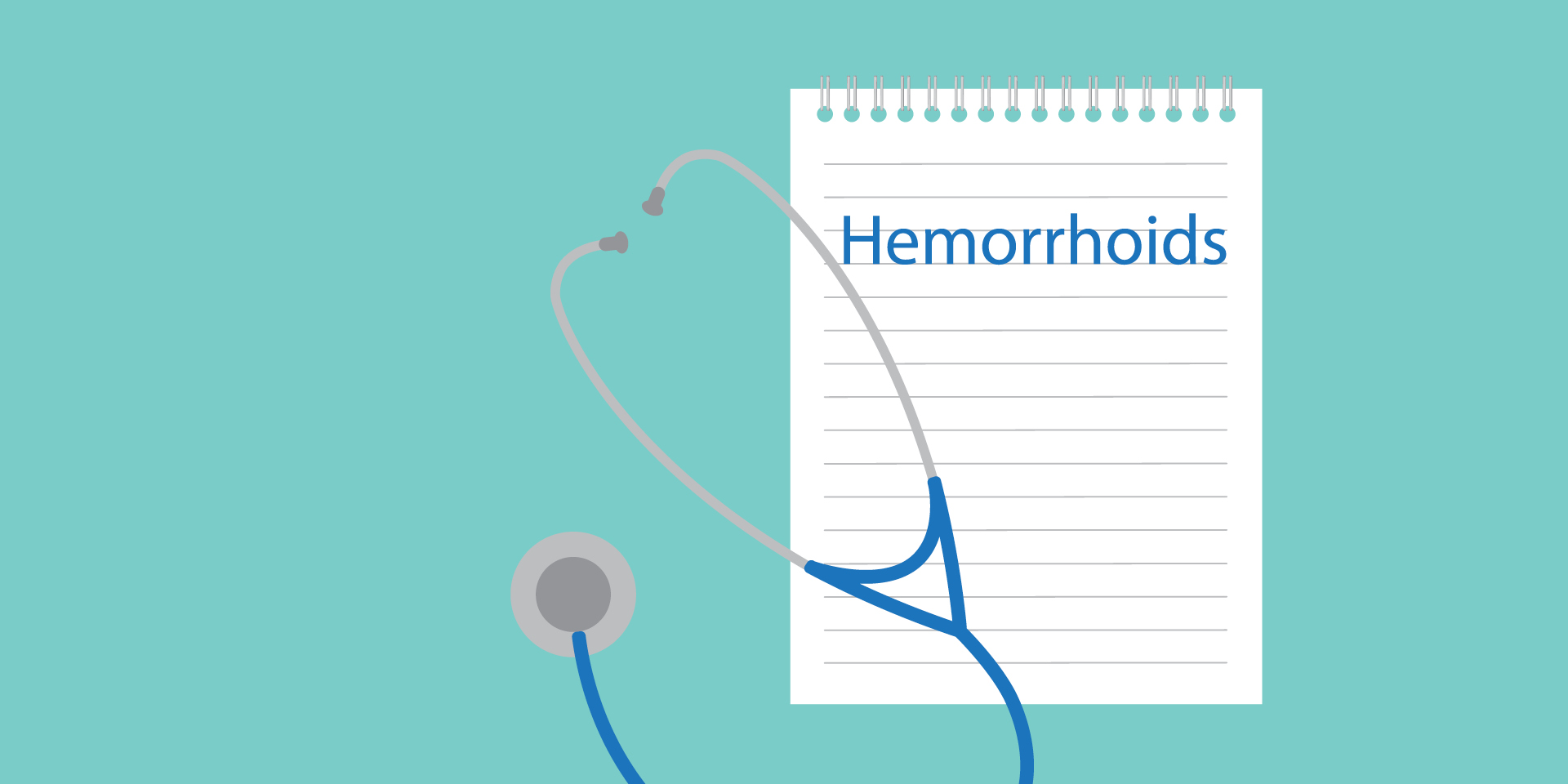Hemorrhoids are common – it is estimated that about half of adults will have them by the age of 50.
Hemorrhoids, also known as piles, are clusters of swollen veins in the anus at the lowest part of the rectum. Patients who experience troubling symptoms of hemorrhoids such as itching and bleeding need not suffer in silence. Talk to your doctor about your symptoms. Depending on the type of hemorrhoid and severity of symptoms, patients may want to see a colorectal specialist.
Doylestown Health Colorectal Specialists offer an array of treatments, starting with conservative measures ranging all the way to surgical solutions. Drs. Robert Akbari and Christopher Bruce are experienced in treating hemorrhoids using advanced techniques to help minimize pain and discomfort following treatment.
"We offer state-of-the-art hemorrhoid care and a range of treatment options," says Dr. Akbari. "There are more options now than there were just 10 years ago."
Home remedies
Medical management of hemorrhoids includes at-home remedies like topical creams and soaking in a warm or sitz bath. Increasing fiber intake is also helpful. These treatments often help symptoms go away within a week.
In-office treatments
When the more conservative approach doesn't take care of symptoms, or when there is severe pain or bleeding, there are several procedures that can be done in the doctor's office to treat the problem.
Banding
Banding, or rubber band ligation, is a leading treatment option for internal hemorrhoids. The physician uses rubber bands to tie the hemorrhoid at its base and cut off the blood flow, which causes the hemorrhoid to shrink and fall off after several days. This technique usually requires a few office visits, is low risk and generally causes little or no pain.
Sclerotherapy
Sclerotherapy involves the injection of a chemical solution into the area around hemorrhoids. This shrinks them by damaging the blood vessels and reducing the blood supply to the hemorrhoids. Sclerotherapy is quick, often painless, has few complications, and may take several short sessions to relieve symptoms.
Excision
This technique involves removing (or excising) external hemorrhoids using a numbing agent. Excision is often used for thrombosed external hemorrhoids, which is when a blood clot (or thrombosis) develops in the area of the hemorrhoid causing significant pain. The hemorrhoid is removed during this procedure to prevent blood clots from reforming, making this an effective treatment.
Surgical approaches
When a surgical intervention is needed, there are several options. These are done in the operating room on an outpatient basis.
Hemorrhoidectomy
Hemorrhoidectomy is the surgical removal of the hemorrhoidal tissue. It has been used by specialists for more than 50 years. This traditional treatment is effective in relieving symptoms and preventing recurrence, however it can be quite painful and may require 4-6 weeks for full recovery.
Doylestown Health Colorectal Specialists offer two newer, less painful options when it comes to surgical treatment of hemorrhoids.
PPH
Procedure for Prolapse and Hemorrhoids (PPH) is also known as a stapled hemorrhoidectomy. During this state-of-the art procedure, the physician uses a stapler-like device to pull up the hemorrhoids and cut off blood supply to the blood vessels that feed them. The recovery is much easier than that of the traditional hemorrhoidectomy.
THD
Transanal Herorrhoidal Dearterialization (THD) involves use of Doppler ultrasound to locate the specific arteries that cause bleeding. The surgeon ties off these feeder arteries with self-absorbing stitches to cut off the blood supply to the hemorrhoids. By treating the cause of the hemorrhoids, THD is an effective minimally-invasive treatment that is low-risk, results in minimal pain and gets patients back to normal activities quickly.
Remember this
Drs. Akbari and Bruce offer all of these procedures to treat hemorrhoids and relieve symptoms, including pain and bleeding. Still, it is important to note that any time there is rectal bleeding or blood in the stool there may be something more serious than hemorrhoids going on.
"Any bleeding should be checked out by a physician to rule out more serious causes," adds Dr. Akbari.
About Doylestown Health Colorectal
Doylestown Health Colorectal Specialists provide expert assessment, diagnosis, and treatment for a wide range of disorders of the colon, rectum, anus and small intestine. Our board-certified physicians offer compassionate, personalized care, continuing patient education and state-of-the-art technology, using advanced colon and rectal surgery and minimally invasive robotic surgery techniques.
